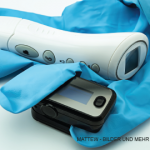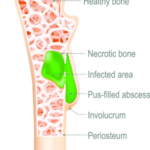First-line therapy for treating SURF is colchicine. In their cohort, treatment with colchicine led to complete response in about 70% of patients at the one-to-two-year mark, and 50% at the five-year mark.5 Dr. Gattorno noted, “Sixty-five percent of patients stopped colchicine because of remission, so this is really an effective drug in most of these patients. And in almost 20% of patients, we are able to withdraw colchicine due to a complete and sustained remission, but in some we have rebound disease and need to restart it. We still don’t know how many will be without therapy in the long run. In our experience, tonsillectomy was usually ineffective for these patients. This is why it’s so important to distinguish SURF from PFAPA.”
In SURF patients who don’t respond to colchicine, second-line therapy is interleukin 1 blocking therapy (e.g., anakinra, canakinumab). Patients who failed colchicine had a good response to these drugs in their cohort. However, Dr. Gattorno made an important point, stating that “if they don’t respond to colchicine, we also need to consider if this could be another undefined genetic disorder with novel genes involved.”
Dr. Gattorno and colleagues are working on an evidence-based classification decision tree for SURF patients. The manuscript is in preparation.
In Sum
The field of AIDs continues to grow and change, and it’s an exciting time to be treating these patients. “There are a lot of undifferentiated diseases in which we can find new [responsible] genes, but there are also new multifactorial diseases that we’ll need to face in the near future,” Dr. Gattorno concluded.

Samantha C. Shapiro, MD
Samantha C. Shapiro, MD, is a clinician educator who is passionate about the care and education of rheumatology patients. She writes for both medical and lay audiences and practices telerheumatology.
References
- Nigrovic PA, Lee PY, Hoffman HM. Monogenic autoinflammatory disorders: Conceptual overview, phenotype, and clinical approach. J Allergy Clinl Immunol. 2020 Nov;146(5):925–937.
- Licameli G, Jeffrey J, Luz J, et al. Effect of adenotonsillectomy in PFAPA syndrome. Arch Otolaryngol Head Neck Surg. 2008 Feb;134(2):136–40.
- Broderick L, Hoffman HM. Pediatric recurrent fever and autoinflammation from the perspective of an allergist/immunologist. J Allergy Clin Immunol. 2020 Nov;146(5):960–966.e2.
- Papa R, Penco F, Volpi S, et al. Syndrome of undifferentiated recurrent fever (SURF): An emerging group of autoinflammatory recurrent fevers. J Clin Med. 2021 May 3;10(9):1963.
- Sutera D, Bustaffa M, Papa R, et al. Clinical characterization, long-term follow-up, and response to treatment of patients with syndrome of undifferentiated recurrent fever (SURF). Semin Arthritis Rheum. 2022 Aug;55:152024.


